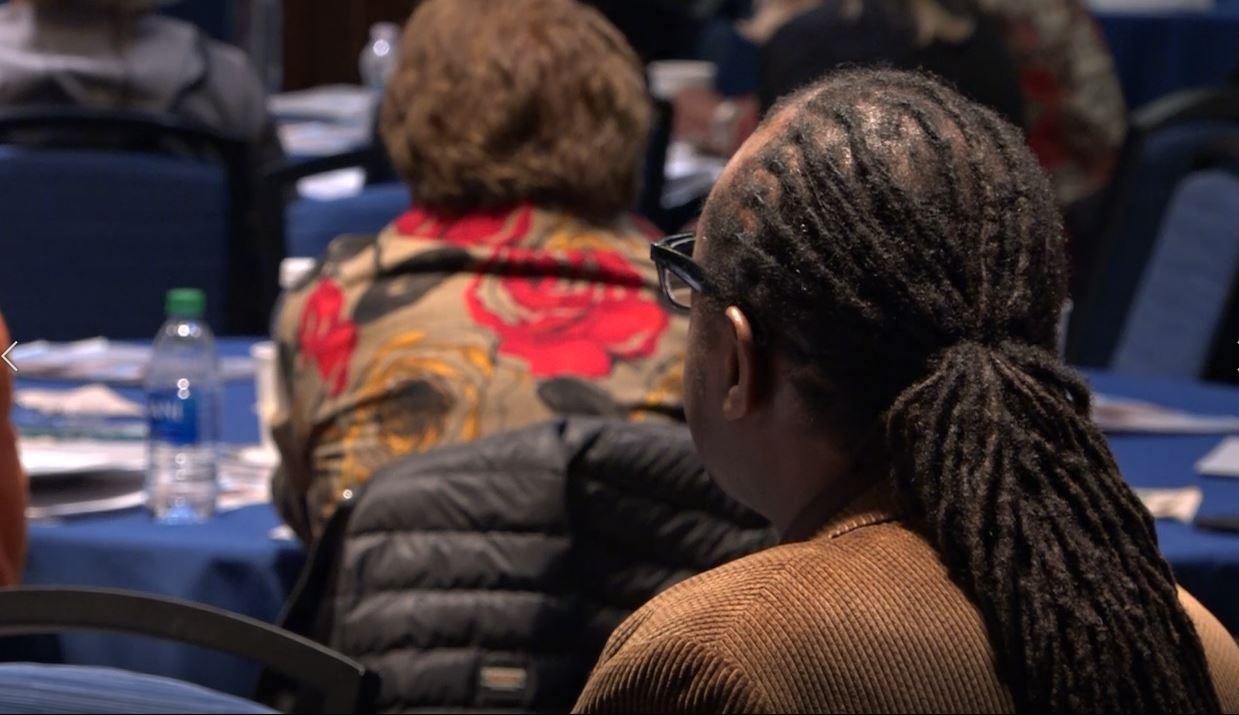Men and #MeToo


PHILADELPHIA (WLVT) - Two years into the #MeToo movement, women are still fighting sexual violence and harassment. Now some are asking: should they be the only ones in this fight?
The first-ever “Men and the #MeToo Movement Conference” ran Nov. 14-15 at the University of Pennsylvania, drawing about 140 people. The conference addressed men’s role in the #MeToo movement.
“I think that doesn’t solve the problem,” said Penn graduate student Dana Barnes. “I think you have to include men, you have to include non-binary.”
“If it’s just a women’s problem, it’s going to unfairly rest on women,” said Rob Garfield, conference organizer and executive board member of the Men’s Center for Growth and Change.
Speakers discussed what it means to be a man in today’s culture, including some unofficial but distinct “rules of masculinity.”
“Don’t show your emotions, make a lot of money, always be in control,” said Mark Greene, conference speaker and founder of Remaking Manhood.
Forcing men into these boxes leaves no outlet for their feelings, Greene said, and it imposes a rigid way of thinking: there’s a social hierarchy and men are at the top.
“The logical end result is going to be kind of sexual assault and violence that leads to the #MeToo movement,” Greene said.
The #MeToo movement erupted in October 2017 when a Twitter post went viral. As the movement grew, millions of women across the world protested against sexual harassment. It’s had real consequences: CEOs ousted, candidates defeated, public figures disgraced.
“[It’s] essentially a correction in the power imbalance between men and women,” Greene said.
Some argue #MeToo an overcorrection, and accused men are often judged too fast in the court of public opinion.
“I think when you have big social movements you’re going to get herky-jerky kinds of reactions,” Garfield said.
That overcorrection is necessary, others say.
“If you’re only starting at a moderate [place], movements don’t change,” Barnes said. “So I think you have to use polar extremes to get movements to find an equal balance.”
In the meantime, men are learning how to navigate a post-#MeToo world. For many, that can be intimidating. A University of Houston study shows men are now more reluctant to interact with women in the workplace. Yet one thing men should understand, speakers said, is that #MeToo should not mean anti-men.
Levone Cannady, lead coordinator HEALTHY MASCULINITY INITIATIVE: “This is not something where we’re attacking you. We’re not trying to vilify you. We’re trying to call you into action,” said Levone Cannady, lead coordinator for the Healthy Masculinity Initiative at WOAR Philadelphia Center Against Violence.
In fact, men can play a big part in reducing sexual harassment.
“The main thing men can do is hold other men accountable,” Cannady said.
When a man does abuse his power over a woman, Garfield said, institutions have had inconsistent responses.
“A report comes in about a man and his business just doesn’t want to deal with it, or they do a knee-jerk reaction and fire him and think it’s going to go away,” Garfield said. “But we don’t really have processes in institutions that can more rationally and humanely deal with this kind of an issue.”
There has to be a standard and fair middle road, Garfield said:
“How is the best way to approach this so that healing can occur? Where is redemption, and what does that look like?”
Some solutions may come from redefining masculinity. In addition to strength, being manly can also include vulnerability and self-awareness.
“What do you gain from the power and control?” asked LaQuisha Anthony, education specialist at WOAR. “Really examining that, and seeing if there are other ways to obtain what you really want.”
“I don’t believe there is space for the traditional mold of masculinity with #MeToo simple because the traditional mold of masculinity has gotten us to #MeToo,” Cannady said.
If you redefine some parts of what it means to be a man, then there’s no conflict between your gender identity and respecting women.
“If you align with a lot of these traditionally masculine roles, that’s not necessarily wrong,” Barnes said. “It’s about not dominating over.”
Two days isn’t long enough to cover the depth of these issues, organizers said, so they’re hoping attendees will take some of the lessons from the conference to their own communities to continue the conversation.
The culture surrounding #MeToo is moving so fast, organizers said this conference wouldn’t have been possible just two years ago. As to holding more events like this, they will wait to see how the conversation changes moving forward.